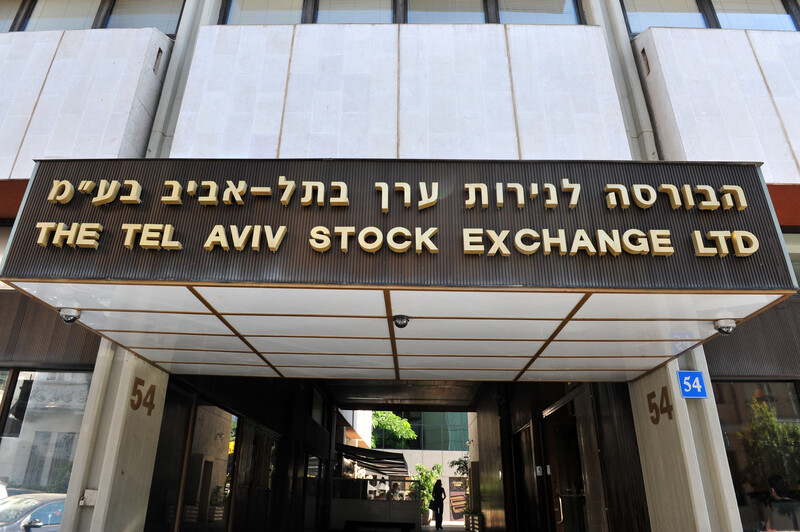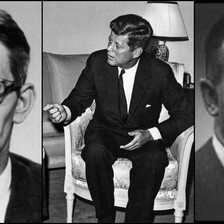The Electronic Intifada 25 September 2025

Short sellers made hay just a few days before the 7 October attack.
Chameleons EyeAs Israel’s military invasion, indiscriminate slaughter and forced starvation in Gaza continue, questions as to how some 3,000 Hamas-led fighters were able to breach Israel’s security barriers on 7 October 2023 remain unanswered.
Israel’s government continues to reject an independent investigation, and evidence is mounting that the state’s top civilian and military leaders didn’t just miss the signs of an imminent assault, but may have purposely ignored them. The motive was to justify the ethnic cleansing of Gaza, the annexation of the West Bank and the creation of a larger Israel in occupied Palestine.
In addition, and surprisingly underreported, suspicious stock market activity just days before the October attack lends weight to the theory that someone somewhere knew something.
Earlier this month, a Haaretz investigation found that the top Israeli military leader for the Gaza area on 7 October had visited the site of the Supernova rave just an hour before the attack and took no precautions.
Lieutenant Colonel Haim Cohen, commander of the Northern Brigade in the Gaza Division, saw that only a handful of police officers were on duty at the crowded festival but told military investigators he had no information suggesting that he should have dispersed the crowd or beefed up security.
The Supernova rave, where 378 people were killed and 44 were taken hostage, was the deadliest single site on a day that saw 1,139 people killed in total and 240 people taken captive.
It is still unclear how many of the dead were killed by Palestinian fighters and how many were killed by Israel itself, due to its deadly Hannibal Directive.
Israeli Prime Minister Benjamin Netanyahu’s immediate response to the crisis has also come under scrutiny. His chief of staff and closest confidant, Tzachi Braverman, is accused of having altered Netanyahu’s phone logs to make them appear as if his first orders to his military on the morning of 7 October came earlier than they actually did.
The night before
The Israeli military had its strongest warnings the night before 7 October, however, but chose at the highest levels to ignore those warnings.
According to reports obtained by Ynet, Israel’s largest news website, a military intelligence unit had noted signs of impending rocket fire on Israel and “unusual activity of the Hamas aerial force” that should have set off alarm bells. Instead, the military “opted to avoid exposing sensitive intelligence sources rather than [taking measures for] preparedness.”
Really? The protection of a few agents was worth the risk of a major rocket attack on Israeli territory without warning civilians?
Ten days after those reports became public knowledge, Netanyahu’s office acknowledged that it had failed to pass on the memo detailing suspicious activity the night before 7 October, but was justified in not doing so because the alert was labeled “non-urgent.”
Israel’s leaders seem to have been better prepared to expel Palestinians in Gaza than thwart a possible assault. Just months after the October attack, they were already calling for the “voluntary migration” of Gaza’s 2.3 million residents while negotiating with several countries for their resettlement.
Such thoughts were swiftly rejected by Egypt, Jordan and a raft of other Arab nations, but Israel continues to eye other countries for the forced deportation of Palestinians in Gaza, including Indonesia, Ethiopia and Libya, with the help of the US administration under Donald Trump.
Even more mind-boggling is that Israeli officials had in their possession a year ahead of time a copy of the 40-page assault plan and watched as Hamas openly trained and prepared for the breakthrough, as the The New York Times reported in November 2023.
Topping off the suspicion that Israel’s top leaders willfully ignored the staggering number of warning signs, Netanyahu’s office has refused to countenance an inquiry into its own failings on 7 October while allowing an investigation into the military’s role and response. Netanyahu remains opposed to an independent state commission inquiry that would look at “the full picture” of political, civilian and military involvement.
If detailed plans and even public video recordings of Hamas training exercises weren’t enough, Israel’s fiscal sleuths also failed to notice another red flag – a sudden spike in trades in the days before 7 October, betting that the values of key Israeli stocks would soon plummet.
The most likely reason for the bet was that the investors knew war would soon break out and stress the Israeli economy.
Suspicious trading
The suspicious timing of the stock market activity was revealed in a 67-page study first reported in the US by CNN.
The authors of the study found that unidentified investors in Israel and the US had sold their stocks in key Israeli companies just days before the Hamas attack. In a practice known as “short selling,” the investors later repurchased their stocks at a much lower price, reaping millions of dollars in profit.
The study – titled “Trading on Terror?” – was written by former Securities and Exchange Commission head Robert Jackson Jr., now a professor at New York University, and Columbia law professor Joshua Mitts, an expert in monitoring short selling activity on stock markets.
“Our findings suggest that traders informed about the coming attacks profited from these tragic events,” the authors wrote, adding “days before the attack, traders appeared to anticipate the events to come.” The study found that on 2 October, “nearly 100 percent of the off-exchange trading volume in the [Israeli equity market] … consisted of short selling.”
Neither author of the report, or the university media relations offices at Columbia, replied to requests for interviews.
In CNN’s 4 December 2023 story, Jonathan Macey, a professor at Yale Law School, told the news channel the findings were “shocking.”
“The evidence that informed traders profited by anticipating the terrorist attack of October 7 is strong,” Macey said. “Regulators appear to lack the ability to discover the entities responsible for this trading, which is unfortunate.”
A story the same day in Haaretz speculated that it was Hamas-linked investors who had pulled their money, not Israelis or pro-Israelis, even though the authors of the paper said they couldn’t identify the investors.
If the short sellers did have connections to Hamas, however, it’s likely the Israelis would have known.
Since at least 2015, The New York Times reported, Israeli intelligence has been tracking the financing that supports Hamas and looking the other way. Critics believe the strategy of Israel’s leaders was that, by propping up Hamas’ leadership in Gaza against the Palestinian Authority’s limited control over parts of the occupied West Bank, the two factions would continue to divide the Palestinian people and head off a unified Palestinian state.
Who profited?
US regulators at the Securities and Exchange Commission and on Wall Street told CNN their policy is neither to confirm nor deny any investigation. That was 19 months ago.
Israeli regulators promised to investigate the unusual activity but, just a day later, said they found no proof of short-selling. Officials at the Tel Aviv Stock Exchange criticized the “Trading on Terror?” report as inaccurate and irresponsible and pointed out that a currency miscalculation by the authors inflated the potential short sale profits from about $9.5 million to just under $1 billion.
Regardless of the miscalculation, the authors of the report told Institutional Investor they stood by the gist of their report.
Yaniv Pagot, head of trading for the Tel Aviv exchange, told Reuters it was unlikely that investors linked to Hamas could have breached the exchange’s security regulations against “money laundering or something like that.”
Perhaps, then, the short sale was the work of Israeli or pro-Israeli investors who had been tipped off by Israel’s intelligence officials or political leaders. Or perhaps, too, Israeli officials who knew of the impending attack were themselves the short sellers.
Given that Israel has so far systematically eliminated five senior Hamas military leaders, 11 members of its political bureaus and attempted to assassinate more in a military strike on US ally Qatar just this month, finding out who profited from 7 October would seem to be a high priority for Israel’s leaders.
Or – judging by the Israeli government’s reluctance to investigate its own role – maybe not.
Jim DeBrosse, Ph.D., a veteran reporter and a retired assistant professor of journalism, is the author of See No Evil: The JFK Assassination and the US Media.





Comments
just like 9/11
Permalink Peter Purich replied on
"Between August 26 and September 11, 2001, a group of speculators, identified by the American Securities and Exchange Commission as Israeli citizens, sold "short" a list of 38 stocks that could reasonably be expected to fall in value as a result of the pending attacks. These speculators operated out of the Toronto, Canada and Frankfurt, Germany, stock exchanges and their profits were specifically stated to be "in the millions of dollars." https://www.911research.wtc7.n...
I have never believed the
Permalink Omar Kassem replied on
I have never believed the official stance that the October 7 attack was a surprise to Israel, but rather an opportunity for Israel to unleash its final ethnic cleansing of Palestine. I hope someday the truth of all that surrounded that day becomes available, but doubt it will in my lifetime.
Add new comment